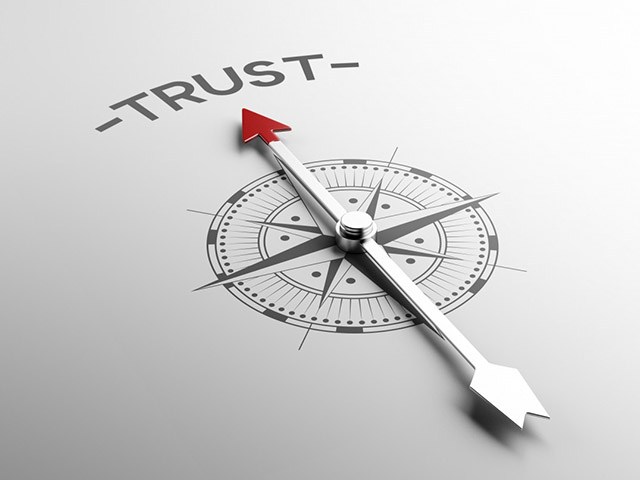
One of the most important aspects of preparedness is the process of establishing a group of people who you can count on when the chips are down. But what does that mean when the situation comes down to really basic survival, when there will be no power, accessible fuel, food or medicines for the foreseeable future? What if every stranger you encounter represents a potential or real threat to the safety of your family and/or to your community, whether large or small? What if the tasks of achieving and sustaining security become the collective responsibility of individuals rather than local government? If that happens, who can you trust?
I have not chosen the word “trust” lightly. Trust is performance based. For the most part, it is objective and, therefore, measurable. Even where it may become subjective in nature (such as an assessment of someone’s character), it will be based upon standards that you have developed over a lifetime. I may have faith in an individual, but even that term owes its existence to a steady build-up of confidence, like building blocks, which ideally leads to rock-solid trust. Is such a thing possible? I think it is, but it requires you to assess individuals in a way that you may have never thought about – at least in the context of survival. Importantly, it is a process that must begin long before you are confronted with a life threatening crisis.
If you’ve raised any children you already know that every degree of trust that you give to them is based upon the demonstration of prior, as well as continuing, progress in every aspect of their growth, training and development, character and conduct. So it is with individuals that you choose to stake your survival on. Stated differently, if desperate circumstances forced you to throw in with a group that you had no prior knowledge of, you would be casting your fate to a far lower standard called “hope;” which can alternately be defined as desperation.
I want to emphasize that effective assessment of survival group participants is really a long-term process. You have the benefit of knowing your immediate and extended family over a relatively long period, and it affords many opportunities to observe. In urban settings, neighbors may come and go. Some may not be very sociable, or you may only get opportunities to learn more about them at infrequent intervals. That can make it difficult to assess their strengths and weaknesses as potential survival partners. Don’t rush the process, but don’t neglect the need and value of building a survival support network, either. The larger your support group is, the better off it will be for you and them. It should go without saying that you can quietly assess people without disclosing your prepper orientation and objectives. Final Prepper and its contributing writers have touched on this issue numerous times over the past few years.

If you are married, your spouse must take an active role in helping select individuals or other families that will become part of your survival group. Trust your instincts. If, after assessing their prospects, either of you has a gut feeling that says “no” it’s best to pass on that individual, even if they demonstrate some aspects of prepping skill. Your reasoning for accepting someone into your group has to be as rigorous as your rationale for declining someone.
Sources of Support
There are four sources of mutual support that you can potentially draw upon during a temporary or sustained crisis:
- Family (nuclear and extended)
- Neighbors
- Friends
- Your local community
You may think that your family members, by virtue of a blood relationship, automatically fit into the “trusted” category for survival purposes. That could be a fatal assumption (more on that, later). In similar fashion, just because you enjoy the company of a neighbor for his or her friendliness at a Friday night poker game does not mean that they possess the qualities needed to enhance your survival prospects, or even their own family.
The context that I use for friends is confined to individuals that share long-term common interests and skills as they pertain to survival. For example, a hunting, fishing or backpacking partner. In my experience these tend to be deep relationships that stretch over many years. You may have known that person since childhood or developed a deep friendship and common interests with someone at work.
The concept of “community” might be a bit vague, depending on whether you live in densely populated urban areas or less populated rural settings. That distinction is important however, and your prospects for developing a successful support system may diverge in very dramatic ways between those two settings.
I’ll come back to these mutual support sources later, but first, let’s examine what I believe are the essential building blocks of trust. Your list might be longer or shorter, but here are my top five “starter” categories that should get you thinking.

The Foundations of Trust
- Character: The moral and ethical nature of an individual or group. I’m not trying to be moralistic with this category – your principal objective should be centered around avoiding individuals with a demonstrated history of behavior that could endanger your survival. For example, you might know a neighbor that borrows but never returns, someone with an addiction or other serious behavioral issue. If so, you may justifiably view them as persons who might steal your food, other essential survival supplies, or place you in direct physical danger. Once you are cooped up with a predator, it’s too late to hear your wife or daughter say that she doesn’t feel safe around him or her.
- Conduct: The manner in which a person carries out their activities, assignments, duties or obligations. Whether at work, in your neighborhood or at family gatherings, you undoubtedly come to know people who are industrious and passionate about their chosen role in life. It may be a neighboring family that enthusiastically invests countless hours in gardening, an associate that is always trying to find a better way to perform a task, or a relative who overcomes difficulties with dignity and poise. In contrast, you probably also know people who make a career out of taking shortcuts, exhibit unsafe practices, take unnecessary risks, or never quit seem to complete a task without intervention. The question is, do you want to surround yourself with achievers, slackers or reckless people when you are in a survival situation?
- Judgment: The ability to accurately assess risks, needs and courses of action. That is, people who demonstrate good analytical skills and sound judgment in the course of their work, a specialized activity or daily living. In a protracted survival situation, you will be confronted with innumerable challenges, many of which you will have never encountered before. You will need people around you that are able to think well, both inside and outside of the box and provide good counsel, rather than people who simply react to fear. Remember this: Real survival situations mean that your margin for error is far smaller than in ordinary, day-to-day living. You don’t get to take a Mulligan if your risk analysis is faulty.
- Knowledge and Experience: The knowledge and skills that provide someone with the ability to effectively and consistently perform a task. This is an issue of training, experience and, to a degree, physical capability. It requires that you objectively determine what types of expertise a person possesses. There is a huge difference between “exposure” and experience. Assigning the wrong tasks to an individual may bring harm to them or to the entire group. Since we are talking about trust in the context of survival, this necessarily means that several members of your group should have demonstrable skills in field craft and the effective use of firearms. Failure to select individuals with vital survival skills will put your group at risk in the long run. By contrast, selecting only individuals that are skilled in the use of firearms – and nothing else – means that your group is only fit to be a raiding party. Give me an accountant that was a combat medic and I’ll be happy. Give me an accountant and a combat medic who each possess additional survival skills, and I’ll be four times as happy.
- Capacity: This includes physical ability, stamina, age and health as it pertains to certain tasks. For example, you may have a high trust level in someone’s ability (young or old) to stand watch, even though they are not physically able to dig a well. He or she may be able to patrol a one-mile security perimeter, but not have the stamina to perform a 20 mile foraging hike in rough terrain. In other words, someone may have perfectly adequate capacity for certain tasks, while being limited in other areas of need. A person’s physical limitations should not be an automatic disqualifier, particularly if they can contribute in other important ways to group survival as described in the preceding categories. In essence, “capacity” is a function of matching knowledge and experience with physical durability under specific circumstances.
These five criteria, and others that you may wish to add, provide the basis for establishing a level of trust about individuals that you may wish to include in your survival group; whether they be family, friends, neighbors or the community at large. My list comprises more than these five, and includes a shared religious faith in God. Your list may include other diverse requirements that are perfectly valid for the circumstances that you envision.
I think it is important to say that trust is something that you confer to an individual, rather than to a group. In other words, the trust that you develop with one person should not automatically extend to his or her associates, particularly if you don’t know them. Simply stated, you are ultimately responsible for assessing the trustworthiness of every member of a group that you may choose to form an alliance with.




















